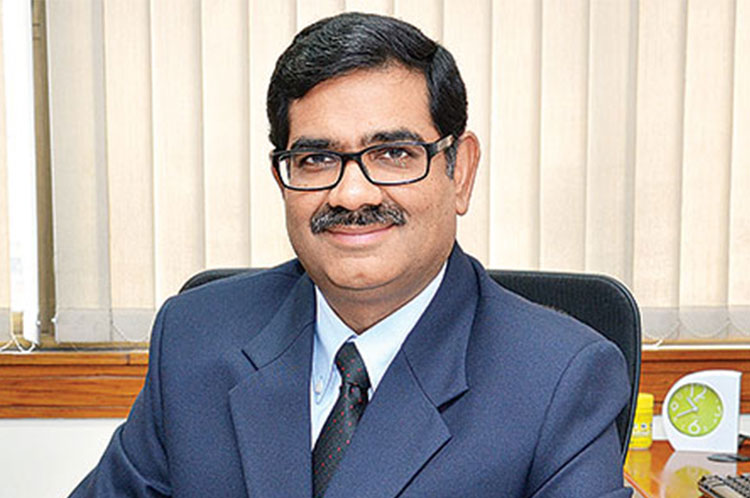November 23, 2018 Reading Time: 3 minutes

Reading Time: 3 min read
Image Credit: Businessworld
The Lakshman Kadirgamar Institute (LKI) recently interviewed Dr. Rajat Kathuria, as part of the LKI Spotlight series. The LKI Spotlight series features interviews with thought leaders around the world, on key and emerging issues of international relations. This LKI Spotlight highlights some of the implications of the ongoing trade war on Sri Lanka and South Asia, and explores views on economic reform and trade in Sri Lanka.
Dr. Rajat Kathuria is the Director/Chief Executive of the Indian Council for Research on International Economic Relations (ICRIER). Dr. Kathuria has over 10 years of experience in policy and regulation. He was an economic advisor to the Telecom Regulatory Authority of India for eight years. In addition, he has worked as a Consultant for international organisations such as the World Bank, and the United Nations Conference on Trade and Development and the International Labour Organization. His recent publications include Low Carbon Pathways for Growth in India and Global Economic Cooperation: Views from G20 Countries.
See below for a lightly edited transcript of the interview, featuring Dr. Rajat Kathuria’s responses to questions posed by Pabasara Kannangara, Research Associate at LKI. The questions and other aspects of this interview are not the institutional views of LKI, and they do not necessarily represent nor reflect the position of any other institution or individual with which the parties are affiliated.
LKI: This year we witnessed the 9th round of negotiations for Economic and Technology Co-operation Agreement (ETCA). How different do you envision this agreement to be compared to the previous one? When can we expect the agreement to be signed?
Dr. Kathuria: There have been negotiations to address the concerns of Sri Lankan exporters due to their continuous trade deficit with India. ETCA involves additional provisions related to services trade, rules of origin, investments, custom cooperation and trade facilitation, and is not just focused on trade in goods like the previous agreement. The increase in number of provisions in the agreement means more protracted negotiations. It is noteworthy that both countries share similar worries while finalising FTAs such as low competitiveness and giving up market access. Sri Lanka has anxieties in services sector, where India is decidedly stronger in this aspect, so we are seeking agreement in IT and ship building services. Nevertheless, there are positive indications of signing the ETCA by end of the year 2018.
LKI: Sri Lanka has taken up a number of reforms, in an effort to strengthen economic foundations. What are some of the key lessons from India’s economic reforms for Sri Lanka?
Dr. Kathuria: I am extremely happy to learn about recent trade reforms underway in Sri Lanka. These will help the country emerge as one of the region’s top exporters and will help attract more Foreign Direct Investment (FDI). Increased trade will also enable it to develop strong relations with neighbouring countries, and India given its size remains the one with most potential. Having said that, I wish to point out that Sri Lankan exporters can benefit by broadening and deepening existing FTAs in terms of greater trade in services and FDI. Export diversification must be the key. Like the ‘Make in India’ programme, the Sri Lankan government could also adopt a similar overarching programme to boost its manufacturing exports and employment levels. It is also important to leverage the ongoing digital revolution and extend trading in digital products, which is the future. In this regard, there are many opportunities for our two countries to collaborate.
LKI: As protectionism and isolationism are back in vogue, should one make the case for trade liberalisation in Sri Lanka and in South Asia?
Dr. Kathuria: I agree that protectionism is raising its disagreeable head. During October 2017 and May 2018, the G20 applied 39 new trade restrictive measures, which if sustained may affect the opportunities that can otherwise be captured on the ground. Such protectionist measures and isolation are never going to yield the outcomes for which they are imposed – instead these could well be counterproductive for world trade. Asia has been the main contributor to growth in recent years, and it can lead the way out of this tendency of isolation. For that we need to be willing to take unilateral action where we can. For example, South Asia is one of the least integrated region in the world but has immense potential. Given India’s and Sri Lanka’s changing attitude towards trade, we could begin by creating deeper economic engagement with each other. According to the World Bank, by 2030 more than a quarter of the world’s working adults would live in this region which also has the potential to emerge as the next export powerhouse. Rising incomes in China along with the ongoing trade war with the US present an opportunity that we cannot afford to miss. Opportunity doesn’t knock twice! Liberalisation can lead to greater integration of the region as has been the case of countries in East Asia. More particularly, India and Sri Lanka need to open up more to attract productive FDI and improve their competitiveness.
END
Hundlani D., Amarasinghe, D. (2018). Sirimal Abeyratne, Amitendu Palit and Elizabeth Ward on Managing Effective Trade. LKI Takeaways Series. Available at https://lki.lk/wp- content/uploads/2018/09/ Takeaways_Sirimal_Abeyratne_ Amitendu_Palit_and_Elizabeth_ Ward_on_Managing_Effective_ Trade.pdf
Kelegama, S. (2014). The India–Sri Lanka Free Trade Agreement and the Proposed Comprehensive Economic Partnership Agreement: A Closer Look. ADB Working Paper Series. No. 458. Available at: http://www.ips.lk/wp- content/uploads/2016/12/india_ sri_lanka_free_trade_ips.pdf